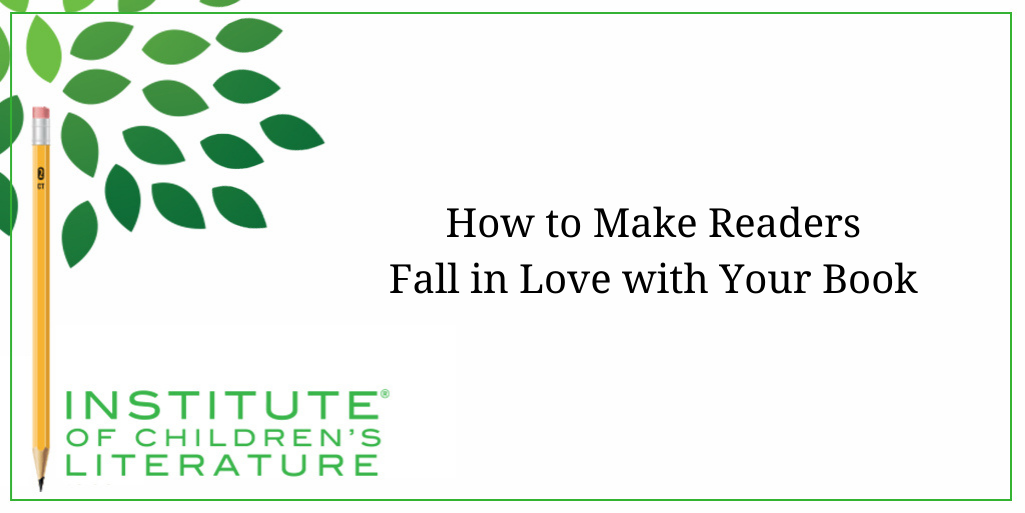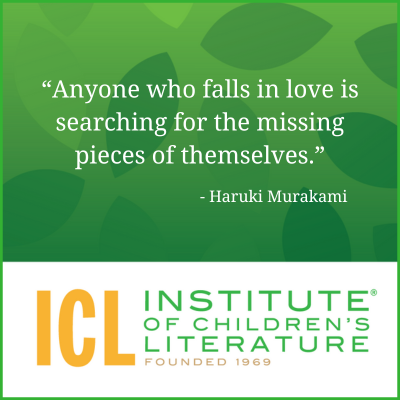
5 Ways Writers Can Prep for 2025 Goal Setting
Before we roll on to the new writing year, let’s harness our optimism for the blank slate before us and prepare for our 2025 Goal Setting just for writers.

Two things increase the likelihood that readers will fall in love with your book. The first is a premise that keeps them thinking long after the story is over. The second is a character that they want to spend time with over and over and over. A great story has both of these things. But how do you manage either one? How do you find your way to the reader’s heart?
Years ago, I wrote a book in which a group of children who all live in the same neighborhood receive mysterious tokens in the mail. When they put these tokens together, a door opens to a magical world. Ultimately, that premise had a lot of flaws. It was my first novel-length work. And I had a lot to learn. But I still get fan mail about the books. I do because readers fell in love with the premise. They wanted to receive something mysterious and magical in the mail. They wanted the opportunity to step into an adventure with a group of soon-to-be friends. They wanted it so much that some of them still think about the book all these years later.

One of the reasons Twilight captured the hearts of so very many readers is that it hit them right in the wish-fulfillment feels. So many teenaged readers felt awkward and unlovable. And yet, they were feeling the pangs of longing. They had crushes on unobtainable people. Then they meet Bella, a rather ordinary, awkward girl who is navigating life with a considerable amount of difficulty. And she develops a crush.
Readers can relate. But then the magic happens. It turns out the crush is fighting his own attraction to her (or to her blood type, I suppose). And this guy will do anything to keep her safe. This is the same element that is at the heart of the appeal of Cinderella. The kind-hearted scullery maid catches the eye, and the heart, of the prince. Twilight says the right person will fall hard for you just as you are, even if you’re just an ordinary girl. Who wouldn’t fall in love with that premise, even if you throw vampires into the mix?
The key to finding a premise readers can love is to remember being the age of your reader. When I was a young pre-teen girl, I loved the idea of having a group of friends right in my neighborhood, friends who wanted to have adventures with me. I also loved the idea of something mysterious and magical happening to change my life and take me on thrilling adventures. I took those things that were true of me, and true of the stories I loved, and wove my own story out of it. And the premise made a flawed story work far better than I could have hoped.

This was another example of a pinch of wish fulfillment in a story. What kid hasn’t wanted to be able to go his own way, while still making his family proud and happy with him? I get fan mail for that story too. It doesn’t hurt that Alfie ends up riding on a dragon. Who wouldn’t love that idea?
Consider making a list of all the daydreams and wishes you remember from childhood. What did you want most? Whatever it was, someone out there wants it too. So how could you create a premise inspired by this wish? It has to offer challenges to overcome and change to offer the main character because it must be a good story. But it also needs to feed that deep desire you remember. Not only will it delight readers, but it will also please the younger version of you as well.
All sorts of characters can beguile readers for different reasons. When I was young, I loved Superman simply because he didn’t have to be afraid of anything. I was afraid of everything. But I eventually realized there was a lot about Superman I didn’t like. He was too easy. He was too much of a good thing. And in order to make strong stories out of him, writers sometimes had to either ignore core bits of who he was or throw in unlikely lore to make them work. Ultimately perfect characters or characters who can do anything have a certain temporary appeal, but they become problematic quickly.

And as a result, this character can beguile, even if you wouldn’t necessarily want to hang out with him. And if the story for this guy involves protecting his dog or saving it from something terrible. Or even grieving it when he couldn’t manage to save it, readers will relate and come along for the ride because they admire that love at the core of the character.
Another thing beguiling characters will have is relatability. That’s the problem with Superman, he may have wish-fulfillment potential, but he’s not really relatable. Few of us struggle with the pain of being too powerful or too perfect. Think of the things you struggle with or things you remember struggling with when you were young.
Characters with fears to overcome to succeed at something are relatable. So are characters who try hard to overcome a fear but can’t quite do it—but discover they’re loved anyway. Characters who struggle to control their emotions are relatable. Characters who fall short of the expectations of others are relatable. All of those things make a character less perfect, but more human. And we tend to connect with the most human characteristics, even if they’re found in a dog character or a space alien or a monster under your bed.
As we approach Valentine’s Day, check your work in progress to see if you’re giving readers a book to fall deeply in love with. Does your premise captivate? Do your characters beguile? Maybe a few tweaks can make your book the one readers have been wishing for. Good luck.
With over 100 books in publication, Jan Fields writes both chapter books for children and mystery novels for adults. She’s also known for a variety of experiences teaching writing, from one session SCBWI events to lengthier Highlights Foundation workshops to these blog posts for the Institute of Children’s Literature. As a former ICL instructor, Jan enjoys equipping writers for success in whatever way she can.

Before we roll on to the new writing year, let’s harness our optimism for the blank slate before us and prepare for our 2025 Goal Setting just for writers.

Writers can be thin-skinned when it comes to getting feedback on their work. Let’s look at 4 ways to positively deal with constructive criticism!

Rejection is part of the territory when it comes to being a writer. Today we offer reflection for writers to help redirect your efforts after a rejection.
1000 N. West Street #1200, Wilmington, DE 19801
© 2024 Direct Learning Systems, Inc. All rights reserved.
1000 N. West Street #1200, Wilmington, DE 19801
© 2024 Direct Learning Systems, Inc. All rights reserved.
1000 N. West Street #1200, Wilmington, DE 19801
© 2024 Direct Learning Systems, Inc. All rights reserved.
1000 N. West Street #1200, Wilmington, DE 19801
© 2025 Direct Learning Systems, Inc. All rights reserved.
1000 N. West Street #1200, Wilmington, DE 19801
©2025 Direct Learning Systems, Inc. All rights reserved. Privacy Policy.
6 Comments
This has given me a great idea for a book. A girl who has to overcome something important in her life. Thank you!
Hi Connie — Glad I helped.